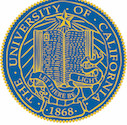
Ensuring Quality in Online Courses: Applying the AACSB International’s Distance Learning Quality Issues
The purpose of this qualitative study was to examine the Distance Learning Quality Issues published by the American Assembly of Collegiate Schools of Business International (AACSB-International) to document the various characteristics that high-quality online courses must possess. A content analysis methodology was employed to examine the seven quality issues to develop a high-quality framework to assist […]














